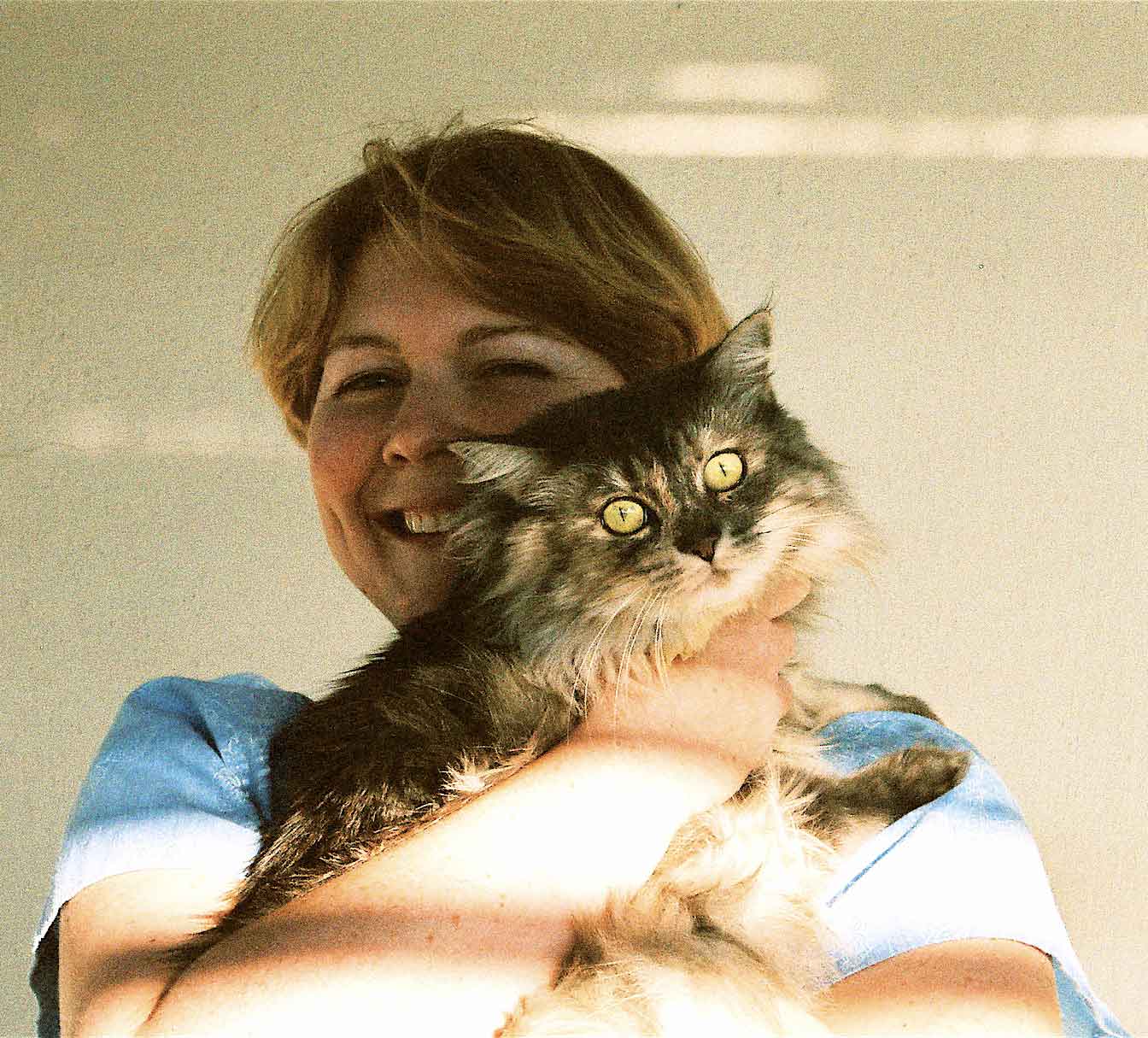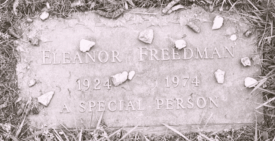In the hospital’s cool, dimly lit recovery room, Evelyn is the only patient, lying in a white-sheeted bed on the far side. Her vital organs have been removed. I have an hour before they come to take her corneas to help someone else see, and before they shave off thin layers of skin to help burn victims heal. She sleeps without the medical gear of the last two days. As long as the equipment was attached, I thought she had a chance. Aside from the two of us, the room is empty and absent of sound.
I sit beside her. Her body is the same temperature as the air. Her skin has the sepia color of old-time photographs rather than the blue tinge I expected. Her face is still, but I imagine her coy smile when she had a surprise for me, her intense stare of anger when something wasn’t right and innocent people were being hurt, and how her eyes lit up whenever she sang.
A teacher of the learning challenged, Ev was in her 40s and recovering from a number of physical ailments, including an infection that left her mostly bed-ridden for a year. She was almost back to full strength and had returned to work and to singing with the California Revels and Piedmont’s Light Opera. She had come through so many odd medical situations over the years that I thought she’d outlive me. Then two days before I found myself sitting next to her lifeless body, without any indication of a problem, she had a heart attack.
During my vigil at her hospital bedside, I talk to her, hoping that my voice would send a beacon through the fog of confusion about where she was, flick some switch in her brain, and guide her back. I want to explain what was happening to her, why she was hooked up to so many beeping and blinking machines, and why we needed some kind of response from her, and soon. But there is no eye movement, no twitching of her fingers, no mumbling in an effort to form words. So I stroke Ev’s calm face and share the words I need to speak, in case she can hear before she drifts too far away.
Brushing soft strands of hair off her forehead, hair that had been dark and wet from trauma, I hold her hand and say what she means to me. I tell her that my insides feel like vegetable soup, that I can’t imagine me without her. I speak of the highlights of our life together, as well as where I think I failed her. I want her to hear because she had worked hard to help me express my emotions, wanting to know everything going on inside me so that she would feel closer. It’s ironic that it took her death to open me up.
I rest my hand lightly on her chest wanting to feel her heart beat, knowing that it won’t. There is only stillness where her heart used to be. I stroke her hair, kiss her eyelids, rest my face on her cheek and whisper in her ear, “Always, my love.” I kiss her cool fingertips and breathe on them, trying to give them warmth. Looking around the empty room, I remember the difficulties we had endured together. “We overcame every challenge, my love, except this one. And yet, you are conquering death by giving life to four people who had only days to live.”
There is only this moment, this impossible, incomprehensible moment, and I know that when I leave, a door will close and not open again. Looking around the room, I notice a glow near the lights and feel her presence. When I finally lay Ev’s hand down, I tuck her in as I did when she was going to bed before me, and ask her to give me a sign, somewhere down the road, that she is okay wherever she is. Getting up, I walk slowly away, life shifting with each step from hope into silence.
For Evelyn this moment is a chrysalis, of going to a place beyond what we can imagine, and opening herself to it. My journey is into a crucible where everything I understand and believe, every illusion and value, will be put to the fire and reduced to bits of bone and ash.
Mark Liebenow’s writings on grief have been published in numerous journals. This essay is from his unpublished grief memoir. His website is markliebenow.com, and his grief blog is widowersgrief.blogspot.com.









